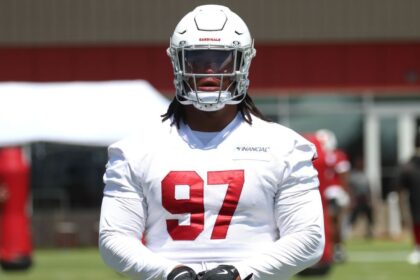A comprehensive study conducted in collaboration with KFF has revealed important findings about the health and well-being of NFL players who retired in 1988. The study, which included nearly 550 former players, delved into crucial aspects such as their physical and mental health, their finances, their families, and their current perspective on American football.
Key Conclusions of the Study
The study’s results highlight a worrying reality: former NFL players from 1988 are more prone to suffer chronic pain, disabilities, depression, and cognitive decline compared to the general American male population. Despite these challenges, an overwhelming majority of respondents stated that they would make the decision to play professional American football again.
- Persistent pain: Almost all players reported experiencing pain in the last three months, and half of them suffer daily.
- Racial disparities: Black players face worse outcomes in various aspects of their lives compared to white players, despite having achieved the same level of professional success.
- Divided opinions: The veterans of 1988 maintain unwavering loyalty to the sport, but their opinions on the risks and benefits of youth football are divided.
To learn about the players’ direct experiences, anonymous responses to open questions about the game were collected.
Survey results in video
The study was partially driven by the concern of Alayna Gilbert, widow of former New Orleans Saints player Daren Gilbert, who reached out to express her concerns about her husband’s difficulties before his death in 2022. The players on that team, despite valuing the brotherhood forged on the field, are dealing with the loss of at least ten teammates and the rapid physical deterioration attributed to American football.
The Gilbert family’s relationship with American football reflects many of the studio’s sentiments: appreciation for the sport, awareness of its risks, and uncertainty about its safety for future generations.
Study MethodologyThe “1988 NFL Players Study” was designed and analyzed by KFF researchers in collaboration with journalists. The survey included a representative sample of the 1,532 former NFL players who participated in at least one game during the 1988 season. Data collection was carried out between October 17 and November 30, 2024, through online and telephone surveys, managed by Davis Research.
Sample and Contact MethodsThe contact information of the players was researched and verified through multiple sources. Of the 1,532 players, it was identified that 128 had died before or during data collection. For these cases, interviews with representatives were attempted. The players and their representatives were contacted by letter, email, phone calls, and text messages. The final sample includes interviews with 546 former players and 18 interviews with family members of deceased players, in addition to an interview with a family member of a living player with cognitive problems.
All participants were offered a $100 gift card or the option to donate the amount to Gridiron Greats, a charity that supports former NFL players.
Representation ConsiderationsThe project team ensured that the surveyed players accurately reflected the demographics of the league in 1988, including race, ethnicity, position, teams, and years in the league. The final sample closely matched the demographics of all 1988 players, with no need for further adjustments. The overall response rate for living players was 40%, and for family members of deceased players, 16%. The sampling error margin for the complete sample is plus or minus 3 percentage points.
National comparison data used in the report are based on KFF analyses of various 2023 sources, such as the Centers for Disease Control and Prevention’s (CDC) Behavioral Risk Factor Surveillance System (BRFSS), the National Center for Health Statistics’ 2023 National Health Interview Survey (NHIS), the U.S. Census Bureau’s 2023 American Community Survey (ACS), and KFF’s 2023 Survey on Racism, Discrimination, and Health. Estimates are based on self-reported survey results and may differ from other clinical estimates.










